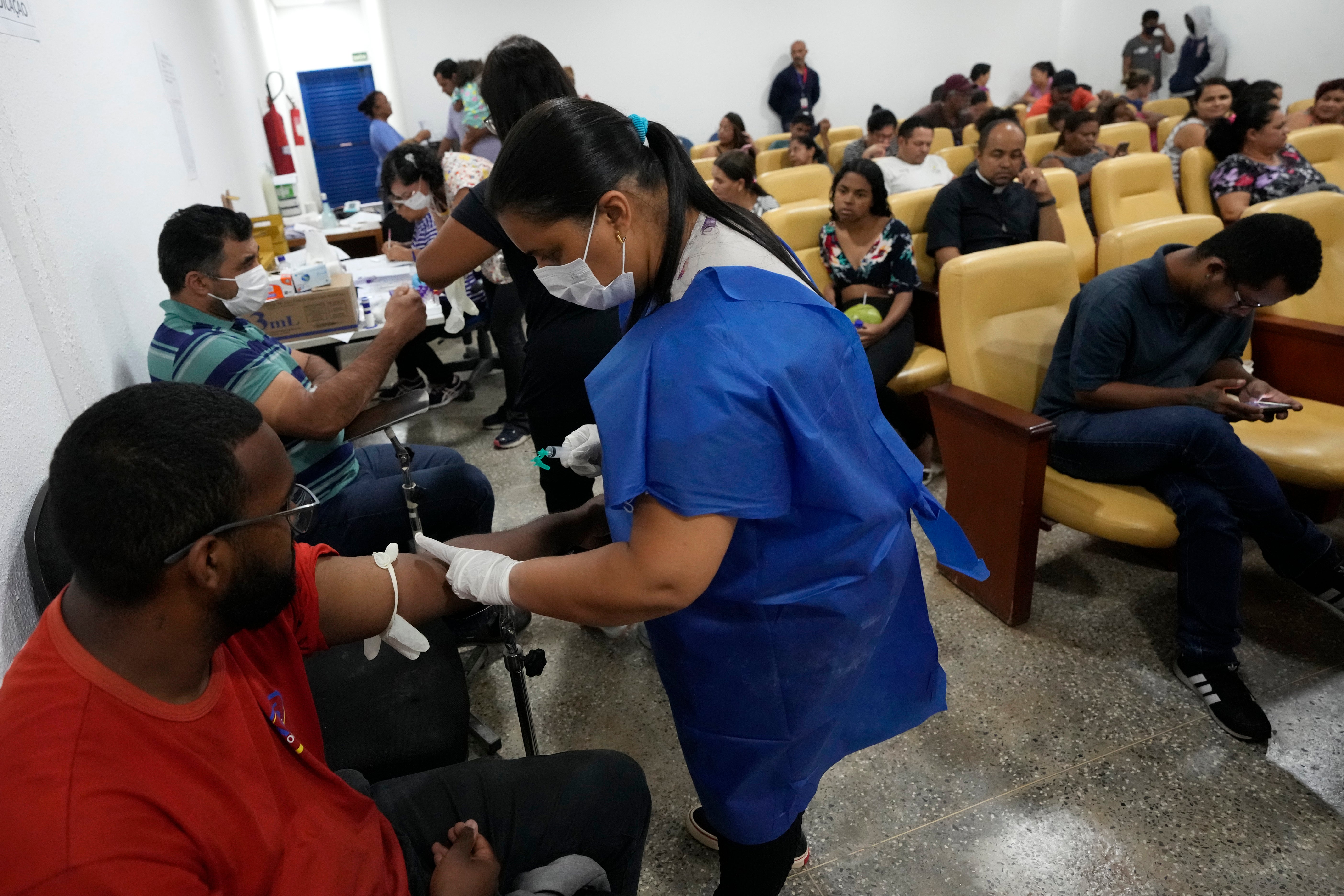Rio de Janeiro has declared a dengue health emergency days before Carnival is due to start
Rio de Janeiro city authorities have declared a public health emergency in the city because of an outbreak of mosquito-borne dengue fever

Your support helps us to tell the story
From reproductive rights to climate change to Big Tech, The Independent is on the ground when the story is developing. Whether it's investigating the financials of Elon Musk's pro-Trump PAC or producing our latest documentary, 'The A Word', which shines a light on the American women fighting for reproductive rights, we know how important it is to parse out the facts from the messaging.
At such a critical moment in US history, we need reporters on the ground. Your donation allows us to keep sending journalists to speak to both sides of the story.
The Independent is trusted by Americans across the entire political spectrum. And unlike many other quality news outlets, we choose not to lock Americans out of our reporting and analysis with paywalls. We believe quality journalism should be available to everyone, paid for by those who can afford it.
Your support makes all the difference.Rio de Janeiro has declared a public health emergency because of an outbreak of mosquito-borne dengue fever, the city said in its official gazette on Monday, just days before Carnival celebrations kick off across Brazil.
But the outbreak wasn't expected to disrupt Carnival, which officially starts on Friday evening and runs until Feb. 14.
Rio city hall announced the opening of 10 care centers, the creation of an emergency operations center and the allocation of hospital beds for dengue patients. Authorities will also use “smoke cars” in regions with the highest incidence of cases, diffusing an insecticide in the air.
Since the beginning of 2024, the municipality has registered more than 10,000 dengue cases. That is just under half of the total cases — 23,000 — recorded throughout all of 2023.
The announcement comes as tourists and revelers are pouring into Rio to take part in street parties and attend the samba schools’ flamboyant parades.
Dengue is a viral infection transmitted to humans through the bite of infected mosquitoes and is more common in tropical climates. Frequent rains and high temperatures, which accelerate the hatching of mosquito eggs and the development of larvae, make the famously hot city of Rio susceptible to dengue outbreaks.
But the problem is national. The explosion of dengue cases across Brazil has caused at least four states — Acre, Minas Gerais and Goias, in addition to the Federal District — to declare public health emergencies.
On Monday, the Brazilian air force set up a 60-bed field hospital in the Federal District in Ceilandia that was due to begin treating patients.
“Our objective is to relieve emergency care units in the region, given that today the Federal District accounts for around 20% of dengue cases in the country,” air force commander Lt. Brig. Marcelo Kanitz Damascene said in a statement.
Most people who get dengue don’t develop symptoms, but if they do these can include high fever, headache, body aches, nausea and a rash, according to the World Health Organization. While most get better after a week or so, some develop a severe form and require hospitalization. In such cases, dengue can be fatal.
Climate change, which leads to increased temperatures and high rainfall, is associated with a higher risk of dengue, WHO said in December.
Rio Mayor Eduardo Paes urged “cariocas” — as the residents of Rio are known — to eliminate sources of still water, used by mosquitoes as breeding grounds.
“Unlike the COVID-19 pandemic, in which individual citizens couldn’t do much more than demand that governments get the vaccine, in the case of dengue much depends on the action of each citizen,” Paes said.
In March 2023, Brazil approved a vaccine against dengue and became the first country in the world to offer a dengue vaccine through the public health system, according to the health ministry. More than 3 million people were due to receive a jab in 2024.